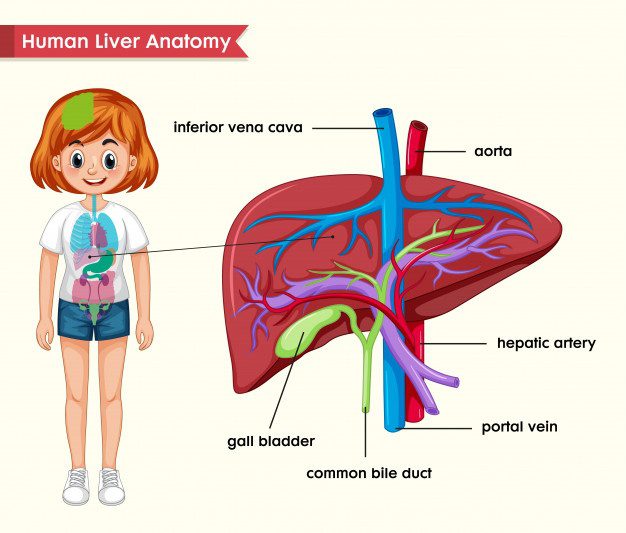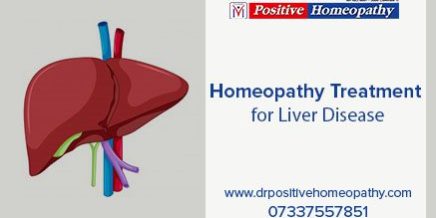The liver is one of the vital organs located in the upper right quadrant of the abdomen performing many important functions including digestion and removing toxins and other waste products from the blood. But like any other organ, it can also be diseased.
Types of Liver diseases:
- Hepatitis or inflammation of the liver which could be due to viral infections like Hepatitis A, B, C, and D or due to non-infectious causes like chemical injuries or autoimmune conditions
- Chronic conditions like Cirrhosis of Liver, tumors both benign and malignant
- Metabolic disorders like fatty liver
- Jaundice
Liver diseases are on a rise now a day’s, especially metabolic and chronic disorders. In India itself, about 39.5 % of patients report with liver cirrhosis and about 40 million people are chemically infected with Hepatitis B while about 6 to 12 million are infected with Hepatitis C. Hepatitis A an acute condition mostly affects children while Hepatitis E is the most common virus involved in epidemics.
VIRAL HEPATITIS
Now a day’s major problems which are commonly affected the condition in the liver is viral hepatitis .inflammation of the liver caused by a viral infection, can be caused by infectious and non – infectious. Infectious agents include viruses and parasites .non-infectious agents include certain drugs and toxic agents. In some instances results from an autoimmune reaction directed against the liver cells of the body.
TYPES OF VIRAL HEPATITIS
Viral infections of the liver that are classified as hepatitis include hepatitis A, B, C, D, and E. Hepatitis A is always acute, Hepatitis B, C, and D are mostly chronic. Hepatitis E is usually acute and is particularly dangerous in pregnant women.
HEPATITIS A
Hepatitis A is caused by an infection with Hepatitis “A” virus [HAV] and is commonly transmitted by food or water contaminated by feces from a person infected with Hepatitis A.
HEPATITIS B
It is transmitted through contact with infectious body fluids, such as blood, vaginal secretions or semen containing hepatitis “B “virus [HBv]. A common route of transmission is injection drug use, having sex with an infected partner and blood transfusion. About 1.2 million people in the United States and 350 million people worldwide live with chronic diseases.
HEPATITIS C
An untreated case of jaundice leads to Hepatitis “C “. It comes from the hepatitis virus [hv] and transmitted through direct contact with infected body fluids.
HEPATITIS D
It is also known as delta hepatitis and much more serious condition though rare, caused by the Hepatitis D virus [HDv]. It is transmitted through direct contact with infected blood. This virus cannot multiply without the presence of Hepatitis “B’
HEPATITIS E
It is a waterborne disease caused by hepatitis “E” virus and mainly found in areas with poor sanitation, typically results in from ingesting fecal matter that contaminated the water supply.
ETIOLOGICAL FACTORS [CAUSES]
Alcohol and other toxins like an overdose of medications and exposure to poisons excessive alcohol consumption, this is sometimes referred to as alcoholic hepatitis .alcohol directly injures the cells of the liver and causes permanent damage and leads to liver failure and cirrhosis.
AUTOIMMUNE RESPONSE
In certain cases, the body’s immune response works adversely. Instead of attacking foreign bodies like germs it mistakes body cells as the enemy and attacks them. This type of autoimmune response can lead to chronic inflammation with acute exacerbations. Women are three times more prone to it when compared to males.
CLINICAL SIGNS
The liver is one of the most resilient organs and chronic liver diseases can progress silently for many years. Many affected remain asymptomatic till major damage is done affecting its functionality. Few common signs and symptoms in Hepatitis are:
- FATIGUE
- FLU LIKE SYMPTOMS
- DARK URINE
- PALE STOOL
- ABDOMINAL PAIN
- LOSS OF APPETITE
- WEIGHT LOSS
- YELLOW SKIN AND EYES WHICH MAY BE SIGNS OF JAUNDICE
- ASCITES

DIAGNOSIS
Liver derangement can be diagnosed with help of:
- History – like blood transfusions, unprotected sex, working in high-risk jobs like hospitals and labs, medication history, etc.
- Physical Examination – the color of the tongue, skin and mucous membranes along with there may be alteration in color of stool and urine. Palpation to rule out liver enlargement and tenderness
- Liver Function test – elevated liver enzymes like bilirubin, ALT, AST, and GGT may indicate liver inflammation or damage
- Abdominal Scan – to find out any fluid in the abdomen, liver tumors or other abnormalities
- Liver Biopsy
MANAGEMENT
Hygiene – practicing good hygiene is the key way to avoid contracting hepatitis A and E. If you’re traveling to a developing country, avoid local water, ice, raw or undercooked shellfish and oysters, raw fruits and vegetables.
Hepatitis B, C, and D contracted through contaminated blood can be prevented by not sharing drug needles, razors, not using someone’s toothbrush. Practice safe sex using condoms to decrease the risk of infection mainly in [hepatitis B and C].
Take a healthy diet, plenty of fluids, green leafy vegetables, garlic, and green tea. Avoid alcohol, smoking, junk and fast food, aerated drinks, fat-rich foods.
Homeopathy treatment for liver disease:
Homeopathy treatment for liver disease is aimed at reducing inflammation and normalizing its functions. Its medicines are selected based on individual symptoms including physical, mental symptoms, likes, dislikes, sleep patterns, dreams, etc. Thus selected Constitutional remedy helps in treating the diseased condition and helps in curing the problem. There are many homeopathic remedies having an affinity towards Liver, given below are a few examples
- Chelidonium Majus: a good remedy for jaundice and other hepatic diseases. Yellow greyish discoloration of the skin. Constant pain under right scapula, soreness in liver region, bilious vomiting and chalky stools.
- Carduus M: It’s the primary sphere of action is in the Liver and Spleen region. Liver enlarged and painful especially to pressure. Dropsy with cirrhosis of the liver. Hard, difficult, knotty, clayey stools.
- Ceanothus: Affects liver and spleen. Urine green, frothy, containing bile and sugar. Unable to lie on the left side.
- China: Excessive flatulence of stomach and bowels with belching giving no relief. Periodical pains, worse at night.
- Lycopodium: One of the major remedy for Liver diseases. Dropsy due to liver conditions. Pain shooting from right to left. Constant fermentation in the abdominal region.
For more information on homeopathy treatment of liver disease, click here.








